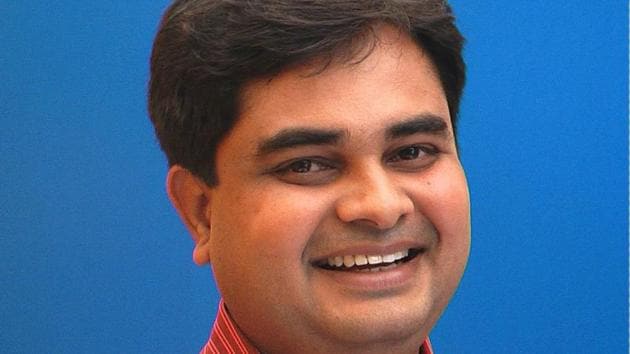Vishwa Marathi Parishad to spread language across the world
Medical literature is set as the theme for this year’s convention primarily featuring books on medical breakthrough, research, general medicine, health, and medical practices.
The Vishwa Marathi Parishad was set up to retain the Marathi culture and language among those who stay outside of Maharashtra and India and is known for their Marathi literature conventions abroad. Hosting noted authors like Dr Shripad Bhalchandra Joshi, political Advisor, Vinay Sahasrabuddhe, author Vijay Kuvalekar, Shyam Jajoo, D S Kulkarni and Sanjay Avate as advisors, the annual convention will be held in Bali on September 10 this year.

Ahead of this global event, HT reporter Prachi Bari went in conversation with Nilesh Gaikwad, the president of the Vishwa Marathi Parishad, to understand the history and the significance of the reputed convention.
When was the first convention held and where?
The first convention (samelan) was held in Andaman in the year 2011. We chose to hold the convention in Andaman to remember Vinayak Damodar Savarkar who had left us with a lot of history through his writings.
Which are the other destinations where the convention has been held before?
We have taken this convention to countries like Sri Lanka, Nepal, Thailand, Mauritius and Bhutan. This year we are taking it to Bali in Indonesia.
Why did you chose Bali?
We are often invited to hold the convention in these countries by the Marathi population there. Indonesia has a special connection with India. According to some of the old Sanskrit books, it is said that Indonesia was once a part of India and was known as Deepantar Bharat. 90 per cent of the population there is Hindu and it still retains its Indian connection with its numerous ancient temples.
What is the theme of the convention this year?
For the first five years, we followed a general theme for the literature convention but later decided to change it to a particular theme every year. In Bhutan the theme was on Media, which was appreciated by many. This year the theme is books on medicine/ medical literature.
There are many professionals from various fields of science, commerce, defence, environment, technology who have also written books on these subjects in Marathi. We use this convention as a platform for them to present their work. This year we have set medical literature as a theme. Books on medical breakthrough, research, general medicine, health, and medical practices will be primarily focused on.
Who are the attendees and what do they achieve by being part of the convention?
We have a strong following of over 300 literature lovers and authors who would be taking part in this one day convention. Besides Maharashtra, book lovers travel from Hyderabad, Delhi, Baroda and other cities in India as well. The locals also participate in large numbers.
What is the agenda of the 7th Annual Vishwa Marathi Sahitya Samelan?
This is a one day convention which will begin at 9 am and will go on till 7pm. There will be discussions and debates among others, which will include a panel of doctors who will decide the themes for the seminar. Following this a local entertainment event, set up by the people in that country will also be held. We understand the monetary limitations in setting up a convention, which is why we have made the convention a one day event. Those interested in travelling on their own, often add sightseeing to their agenda besides attending our convention.
How much does it cost to hold such a convention?
It costs around Rs 8 to Rs 10 lakhs at the least. Though people travel on their own, we ensure that they attend the convention throughout the day.
How is the convention different from others?
There are many conventions in Maharashtra which focus on Marathi literature but we stand out as our focus is largely to open the Marathi culture to the world. There are Maharashtrians across the world who would like to connect and strengthen their ties with the written word. For example, in Bali there are around 2000 families and we help them to nurture the Marathi culture by using our platform.
What were the hurdles/ hassles that you faced while organising such a convention?
We didn’t face many significant hurdles as we usually tie up with the embassy of the countries where we organize the convention. We have had smaller mishaps like losing passports or procuring visas for some of our authors , but otherwise we haven’t really faced any grave problem.
What did you learn from the first convention and what has changed since then?
Initially, we were in a learning phase, after which we realised that we should shift our focus and look at what we can do to help create more awareness about the Marathi language and culture. For example in Mauritius, we had a session on children’s literature and we realised that children in the Indian schools were keen on learning Marathi. Therefore, we gifted children’s literature books to a school there in an effort to help the children nurture their interest.





